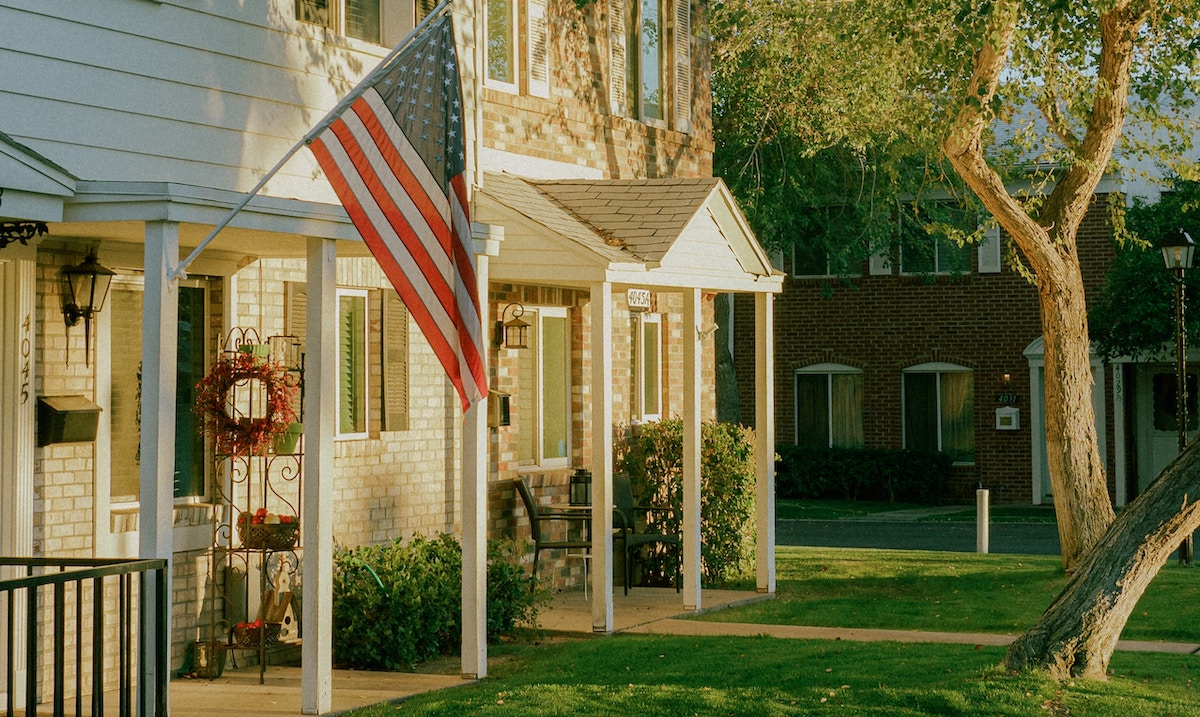Finance and Investments
Is Owning a Short-Term Rental Property Really More Lucrative? How To Decide
Last Updated Dec 4, 2023


Are short-term rental properties a good investment? It depends on a lot of factors, so before deciding if owning a short-term rental is right for your situation, you need to consider the real cost — including time, effort and money. You should also compare and consider whether you may be better off with a long-term rental that offers stable income, tax benefits, and less wear-and-tear on your home.
With a higher per-night rate short-term rental properties can be a profitable investment, but finances are likely to vary significantly. Especially in this macro environment, where scores of short-term property owners are reporting increased vacancy rates. Additionally, the payday that can come from a popular vacation rental becomes a lot less attractive when you factor in the number of hours you’ll spend working as a frontline customer service agent for your own property.
Owning a short-term rental might be best for you if you intend to use the property for part of the year, or if you’re looking for a higher risk and reward opportunity. In the right location, short-term rentals can be very lucrative, but becoming a ‘host’ rather than a ‘landlord’ comes with considerable challenges — including the ethical implications of removing housing options from those who are currently priced out of homeownership.
A Bloomberg report revealed that AirBnb spends millions of dollars annually to make “nightmares” go away for guests and hosts alike. Meanwhile, local governments are fighting back against short-term rentals, which reduce the amount of available housing for full-time residents and raise rent and home prices for everyone.
Owning a long-term rental might be better for you if you want to earn passive income, take advantage of tax strategies, and prefer a long-term investment vehicle that requires less of your time and energy. If you don’t plan to sell a property immediately, long-term rentals can offer a good return on your investment.
To help weigh up your options, in this article we dive a bit deeper into short-term rentals and what’s really involved in using your home for this purpose.
What is a short-term rental property investment?
A short-term rental is a residential home or investment property you rent daily, weekly, or monthly. Also known as a vacation rental, short-term rentals are typically listed on shared economy sites like VRBO, HomeAway, and Airbnb. This is a great option for people who live in their home while renting out a room, or for people who use their home for part of the year — renting the entire house for vacationers when they’re away.
This differs from a long-term rental property, which is rented to a single person/couple/family for a fixed-term on a lease agreement. This is ideal for investment properties, with homeowners benefiting from the stability of having the same residents for 12-months or more. A long-term rental is also significantly less work than managing a short-term rental — helping to achieve truly passive income if managed well.
Is it legal to use an investment property for short-term vacation rental?
Before deciding what to do with your investment property, it’s important to note that some cities either restrict or ban short-term rentals for investment homes. Residential homes that are shared are great for vacation rentals, but every investment home used for this purpose makes one less home available to local residents looking for somewhere to live. Many states and counties are intervening and introducing short-term rental ordinances and licensing fees to restrict the number of investment homes used as short-term rentals. You will need to apply for and pay for a permit to operate a short-term rental property in most states in the US.
In California, for example, there is a new Short-Term Rental Ordinance (STRO) in San Diego that caps the total number of short-term rental properties to 1% of the city’s total housing. In Los Angeles, it’s illegal to put an investment property on the short-term market, with licenses only granted to homeowners who live in the property for at least six months of the year.
Are short-term rental properties a good investment?
Whether a short-term rental property is a good investment will depend largely on your financial situation, your ability to invest the time and money into managing the high turnover of guests in the property, and the location of the home. There’s also the ethical consideration of removing a home from the rental market when homeownership is out of reach for a growing cohort of Americans.
As with any real estate investment, carefully calculate your expenses and potential cash flow. You will also need to evaluate each property to determine if it is suitable for a short-term rental.
There are unique costs associated with short-term rental investments. Outside of the initial investment of acquiring the home, ongoing short-term rental expenses include:
- Furnishing the property
- Listing, marketing, and administrative costs
- Cleaning and preparing the home for every guest
- Laundering all bed linen and towels for every guest
- More regular maintenance to the property and furnishings
- Landscape maintenance if you have a yard or garden beds
- Short-term rental insurance
- Utilities such as electricity, gas and water
- Internet to provide guests with wifi
- Host and listing fees
- Transient Occupancy Taxes and state licensing fees where applicable
- Regular supplies and stock of essential items like toilet paper, soaps, shampoos and basic kitchen ingredients
- Digital locks and security system
There’s also the time and energy cost. As a host, you will be responsible for customer service associated with your short-term rental. Customer service responsibilities will require you to communicate with potential and current guests promptly and professionally. You will also need to respond to questions or emergencies whenever they arise. You should expect much of this communication to occur in the evenings and on weekends.
Managing a short-term rental investment property often includes additional responsibilities, some of which you must complete more frequently. Administrative tasks will include, but are not limited to:
- Maintain and update the short-term rental listings on sites like VRBO, HomeAway, and Airbnb
- Market the property, arrange for photography, request guest reviews
- Manage bookings and update availability across platforms
- Record keeping tasks which will include finances, bills, taxes, payroll, or vendor management
- Arrange for cleaning and maintenance between every guest
If you can identify and hire the right professionals, you may delegate some of these tasks to others. Engaging a team of professionals will allow you to focus more of your time on managing those partners and solving problems as they arise. It might be worth checking out what other Airbnb hosts are saying about their experience before opening your home as a vacation rental.
How owning a short-term rental differs from owning a long-term rental property
Owning a short-term vacation rental can differ significantly from investing in long-term real estate properties for lease on the rental market. Carefully compare the two to decide which type of real estate investment property is best for you.
Income, cash flow, and expenses
With work and dedication, short-term rental investments can be very lucrative. Many short-term rental owners report significant earnings, even if their property is not leased for the entire year. Achieving success requires careful planning and calculations because your property will not have long-term tenants — and your ongoing costs and maintenance will be higher. The cash flow and incomes from a short-term rental property are highly variable, making it more difficult to budget and plan expenses.
In contrast, long-term rental properties have fewer operating costs and long-term tenants. While a long-term rental may not be able to command the same nightly rate as a short-term rental, finances will be more stable and easier to predict. If your home is with Belong, you can even receive guaranteed rent and manage your cash-flow with financing options for any expenses including maintenance.
Tax implications and strategies for real estate investments
If you operate a short-term rental, most counties will require you to collect and pay extra taxes, such as Transient Occupancy Tax, in addition to your property taxes. This is on top of short-term rental licenses and application fees. Sometimes hosting platforms will charge and collect these fees for you, but in many cases they don’t so do your homework to avoid having these taxes and fees eat into your profits.
If you rent your home long-term on a lease agreement, you become eligible for advantageous tax strategies that aren’t available to homeowners who reside part-time in the home or operate a vacation rental, allowing you to deduct expenses such as fees, repairs, taxes, and even insurance premiums.
Maintenance and repairs
Short-term rentals are likely to require more repairs and more frequent maintenance, for both the property and your furnishings. Although platforms such as Airbnb have attempted to ban large parties, they have difficulty enforcing these rules and short-term rentals continue to attract groups who plan to party and invite over unregistered guests during their visits.
Long-term rentals will have less wear and tear as tenants tend to take better care of a property they think of as their home. You can also expect long-term tenants to take better care of basic items since they do not see your property as a crash pad.
Property Management Fees
If you choose to work with a property manager or property management company, the fees for short- and long-term properties differ significantly. You can expect short-term rentals to have management fees as high as 30% of the rent collected because managing a short-term rental property is considerably more work.
Comparatively, long-term rental management fees generally range between 8-10% per month.
If you choose to work with Belong, the property management alternative, you can also benefit from services that short-term and traditional property management companies don’t offer — such as guaranteed rent, a 24/7 concierge service (for you and your residents) and innovative financing solutions to manage cash-flow. Learn more about Belong for homeowners here.
If you choose to rent your home long-term, consider Belong
Whether you’re self-managing a rental home or having your home loved by Belong, we are simplifying the rental experience and helping more homeowners reach their financial goals through real estate.
Visit our homeowner's page to find out more about how our services are helping people to ditch property management in Seattle, Redmond, Oakland, San Francisco, San Diego, Los Angeles, Miami and many more.
About The Author
Jordan Newsom
Jordan Newsom is a highly-caffeinated writer who loves delighting readers, using content to teach, and broadening perspectives. When she's not behind a computer screen, she's hunting down the best coffee shops, breweries, and restaurant patios in Denver, Colorado.




